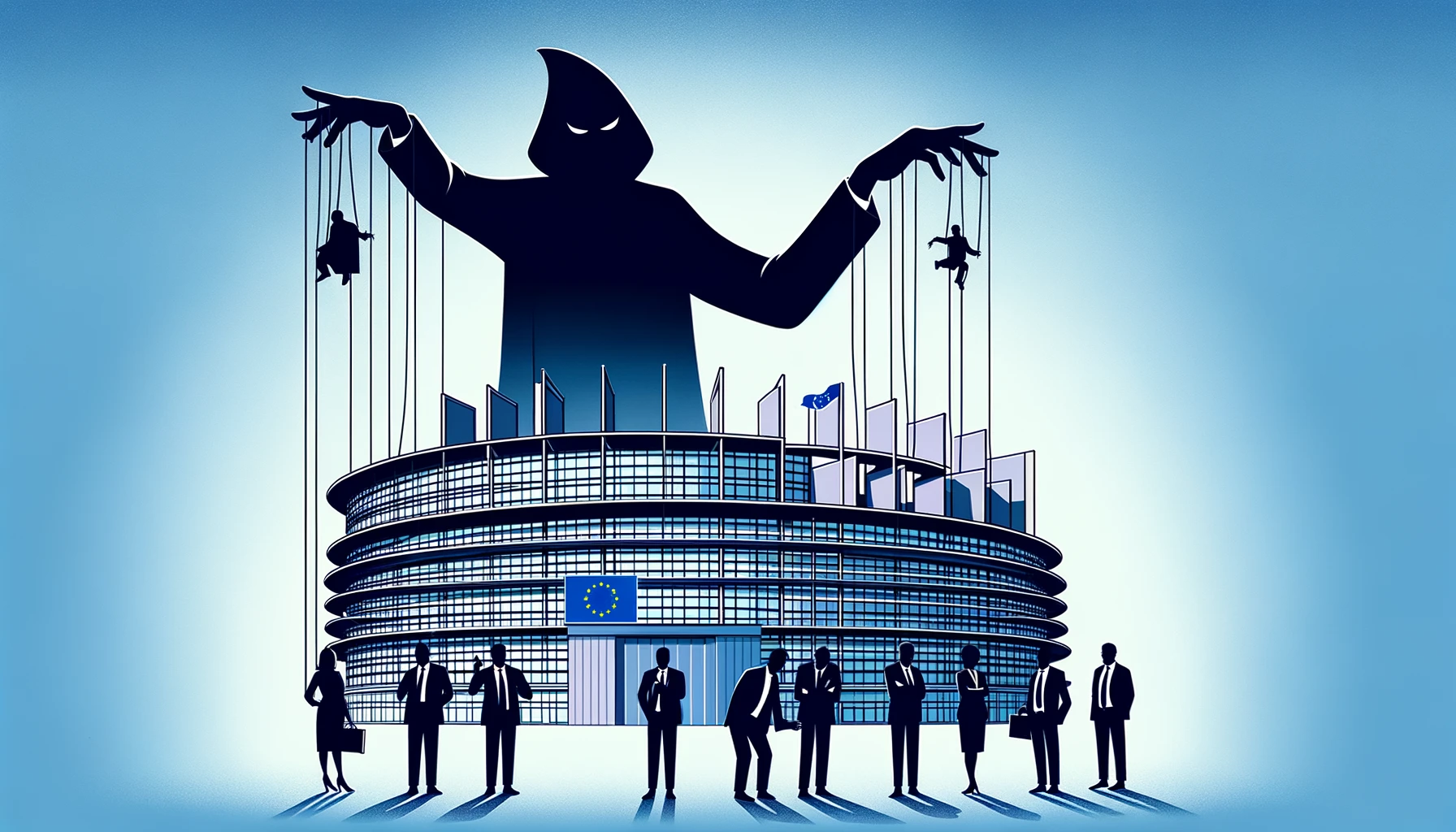European monitors have detected a significant increase in Russian disinformation efforts as the European parliamentary elections approach in June. A notable operation, known as “Doppelganger,” involves creating fake websites that closely mimic legitimate news sources like Britain’s Guardian and Germany’s Bild. These websites, filled with Kremlin propaganda, continue to proliferate despite concerted efforts to shut them down.
Persistent Propaganda
The persistence of these fake sites highlights the vast scale of Russian interference and the near impossibility of controlling it. This disinformation campaign is especially concerning with the European Parliament elections set for June 6-9, where around 200 million voters across 27 member states will cast their votes. The advent of generative AI has made producing and distributing false information both easier and cheaper.
Examples of Disinformation
- A fake website impersonating France’s Defense Ministry falsely claimed that 200,000 French recruits would be sent to Ukraine.
- A well-known German journalist, referred to as “the Putin connoisseur,” was revealed to have received over $600,000 from a Russian billionaire allied with the Kremlin.
- Authorities in Belgium, Poland, and the Czech Republic have uncovered evidence of the Kremlin paying European parliamentarians to spread pro-Russian propaganda.
Heightened Stakes
The ongoing war in Ukraine has significantly raised the stakes for Russian President Vladimir Putin, who aims to weaken Western support for Kyiv. Bret Schafer, a researcher at the German Marshall Fund, noted the lack of fear among Russian propagandists: “What are we going to do, sanction them? That’s already happened.”
The upcoming European elections might not provide definitive evidence of Russian influence affecting the results, but they are a critical test for democratic accountability and could foreshadow similar interference in the U.S. presidential elections this fall. Polls suggest that populist right-wing parties, some sympathetic to Moscow, may gain ground, though it will be challenging to measure how much of this is due to Russian disinformation.

Struggles with Tech Companies
European officials have launched investigations into major social media companies like Facebook and Instagram (owned by Meta) and X (formerly Twitter) for failing to curb the spread of disinformation. New EU regulations under the Digital Services Act require these companies to be transparent and vigilant, but compliance has been problematic. Last month, EU officials opened investigations into Facebook and Instagram on suspicions that they are not meeting their obligations to contain disinformation.
Under Elon Musk’s ownership, X has begun charging more than $40,000 per month for data access to accounts and posts that was previously free. This fee is beyond the means of most academics, researchers, and non-governmental groups. Meta has also announced plans to shut down its data-tracking tool, CrowdTangle, which has provided analysts with crucial insights into disinformation patterns.
Democratic Safeguards
Alexandre Alaphilippe, executive director of EU DisinfoLab, emphasized the challenge: “It’s whether democracy is up to the challenge of holding everyone accountable. Do we have the democratic safeguards?”
The question isn’t whether Russia is winning the propaganda war in Europe but whether democracies can effectively respond to the challenge. The resilience and persistence of the Doppelganger operation, even after being exposed, is a worrying sign. The West increasingly appears to be “flying blind” to Russia’s online predations due to limited data access from tech giants.
Implications for the United States
If Europe struggles to counter Russian disinformation, the implications for the United States could be even more severe. The U.S. faces its own presidential election this fall, and Russian interference is expected to intensify. The toxic political environment in the U.S., coupled with strong First Amendment protections, makes it even more challenging to monitor and counteract disinformation.
This article is based on the following article:
https://www.washingtonpost.com/opinions/2024/05/27/russia-disinformation-propaganda-eu-elections

Background Information
What is Disinformation?
Disinformation refers to the deliberate spread of false or misleading information intended to deceive people. Unlike misinformation, which is false information spread without harmful intent, disinformation is specifically designed to manipulate public opinion or obscure the truth.
Russia’s History with Disinformation
Russia has a long history of using disinformation as a tool of statecraft, dating back to the Soviet Union’s use of propaganda. The modern Russian government has continued and expanded these practices, using the internet and social media to reach global audiences.
European Parliament Elections
The European Parliament is the directly elected parliamentary institution of the European Union (EU), representing citizens from the 27 member states. Members of the European Parliament (MEPs) are elected every five years. The next elections, scheduled for June 6-9, 2024, will see around 200 million voters casting their ballots.
The Role of Social Media
Social media platforms like Facebook, Instagram, and Twitter (now X) have become crucial battlegrounds for disinformation campaigns. These platforms allow information to be spread rapidly and widely, making them ideal tools for those wishing to influence public opinion.
Generative AI and Disinformation
Generative AI refers to artificial intelligence that can create new content, such as text, images, or videos. This technology can be used to produce convincing fake news articles, images, and videos at a low cost, making it easier for disinformation campaigns to produce and disseminate false information.
The War in Ukraine
The ongoing conflict between Russia and Ukraine, which began with Russia’s annexation of Crimea in 2014 and escalated with the invasion of Ukraine in 2022, has significant geopolitical implications. Western countries, including many in the EU, have supported Ukraine through economic sanctions against Russia and military aid to Ukraine. Russia’s disinformation campaigns aim to undermine this support and sway public opinion in its favor.
The Digital Services Act (DSA)
The Digital Services Act is a new EU regulation that came into effect in 2024. It aims to increase the accountability of social media companies by requiring them to take measures to prevent the spread of illegal content and disinformation. Companies that fail to comply with the DSA can face substantial fines.
The Role of Technology Companies
Tech giants like Meta (which owns Facebook and Instagram) and X (formerly Twitter) play a critical role in either facilitating or curbing disinformation. These companies have tools and data that are crucial for tracking and stopping the spread of false information. However, their cooperation and transparency are essential for effective monitoring.
Key Terms and Concepts
- Propaganda: Information, especially biased or misleading, used to promote a political cause or point of view.
- Kremlin: The executive branch of the Russian government, often used as a metonym for the Russian government as a whole.
- Sanctions: Penalties imposed by one country on another, typically in the form of trade restrictions, to influence the latter’s behavior.
- NGOs (Non-Governmental Organizations): Independent organizations that are not part of the government. They often play a role in monitoring human rights, environmental issues, and disinformation.
- API (Application Programming Interface): A set of tools and protocols for building software and applications. In this context, it refers to the access researchers have to social media data.
The Importance of Media Literacy
Understanding how to identify and critically evaluate information sources is crucial in an age of widespread disinformation. Media literacy involves skills such as recognizing bias, verifying facts, and understanding the motives behind different types of content. Educating young people about these skills is essential for maintaining a well-informed society.

Debate/Essay Questions
- How can democratic societies effectively combat disinformation campaigns without infringing on free speech rights?
- What are the ethical implications of tech companies restricting access to data that researchers use to track disinformation?
Please subscribe to Insight Fortnight, our biweekly newsletter!
